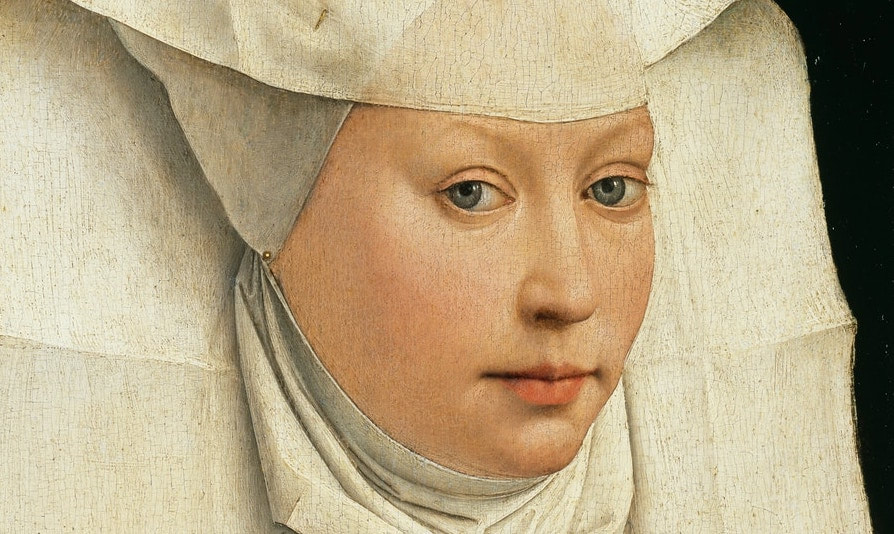Julian of Norwich
|
Julian (or Juliana) of Norwich (1343−1413) is the most popular of the English mystics. She lived as a Benedictine nun in Norwich, beside the St. Julian Church, from which she most likely took her name. Little is known about Julian’s life, although she is mentioned by her contemporary, Margery Kempe. Julian’s book Revelations of Divine Love entitled her to become the first great female writer in the English language. Despite her disclaimers of being unskilled as an author, she wrote lively prose in a style all her own. She was well trained in the Bible as well as the teachings of the Church.She lived practically her whole life in the English city of Norwich, an important centre for commerce that also had a vibrant religious life. During her lifetime, the city suffered the devastating effects of the Black Death of 1348–50; the Peasants' Revolt, which affected large parts of England in 1381; and the suppression of the Lollards. In 1373, aged thirty and so seriously ill she thought she was on her deathbed, Julian received a series of visions or "showings" of the Passion of Christ. She recovered from her illness and wrote two versions of her experiences, the earlier one being completed soon after her recovery, and a much longer version, today known as the Long Text, being written many years later.
|
Quotes
|
“The Trinity suddenly filled my heart with the greatest joy. And I understood that in heaven it will be like that for ever for those who come there. For the Trinity is God, God is the Trinity; the Trinity is our maker and protector, the Trinity is our dear friend forever, our everlasting joy and bliss, through our Lord Jesus Christ.”
-Julian of Norwich “Our courteous Lord does not want His servants to despair because they fall often and grievously; for our falling does not hinder Him in loving us.” -Julian of Norwich “The greatest honor we can give to God is to live gladly because of the knowledge of His love.” -Julian of Norwich “Sin has no substance it is only known through the pain it causes.” -Julian of Norwich “For it is God’s will that we believe that we see him continually, though it seems to us that the sight only be partial; and through this belief he makes us always to gain more grace, for God wishes to be seen, and he wishes to be sought, and he wishes to be expected, and he wishes to be trusted.” -Julian of Norwich Source: Showings "The soul that would preserve its peace, when another's sin is brought to mind, must fly from it as from the pains of hell, looking to God for help against it. To consider the sins of other people will produce a thick film over the eyes of our soul, and prevent us for the time being from seeing the 'fair beauty of the Lord'-- unless, that is, we look at them contrite along with the sinner, being sorry with and for him, and yearning over him for God. Without this it can only harm, disturb, and hinder the soul who considers them. I gathered all this from the revelation about compassion...This blessed friend is Jesus; it is his will and plan that we hang on to him, and hold tight always, in whatever circumstances; for whether we are filthy or clean is all the same to his love." -Julian of Norwich "Glad and merry and sweet is the blessed and lovely demeanor of our Lord towards our souls, for he saw us always living in love-longing, and he wants our souls to be gladly disposed toward him . . . by his grace he lifts up and will draw our outer disposition to our inward, and will make us all at unity with him, and each of us with others in the true, lasting joy which is Jesus." -Julian of Norwich Prayers In you, Father all-mighty, we have our preservation and our bliss. In you, Christ, we have our restoring and our saving. You are our mother, brother, and Saviour. In you, our Lord the Holy Spirit, is marvelous and plenteous grace. You are our clothing; for love you wrap us and embrace us. You are our maker, our lover, our keeper. Teach us to believe that by your grace all shall be well, and all shall be well, and all manner of things shall be well. Amen -Julian of Norwich God, of your goodness give me yourself, for you are sufficient for me. I cannot properly ask anything less, to be worthy of you. If I were to ask less, I should always be in want. In you alone do I have all. -Julian of Norwich |


